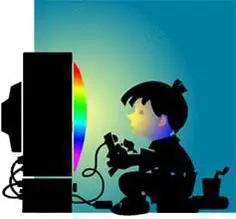
Recognizing the Signs: Common Symptoms of Gaming Addiction
- Admin
In today's digital age, gaming has become an increasingly prevalent form of entertainment. However, for some individuals, gaming can escalate into an addiction with severe consequences. Recognizing the signs and symptoms of gaming addiction is essential for early intervention and support. In this article, we'll explore common symptoms of gaming addiction, how they manifest, and the impact they can have on individuals' lives.
1. Preoccupation with Gaming:
One of the primary symptoms of gaming addiction is a preoccupation with gaming. Individuals may constantly think about gaming, eagerly anticipate their next gaming session, and feel restless or irritable when unable to play. This preoccupation can lead to a neglect of responsibilities, hobbies, and social activities.
2. Loss of Interest in Other Activities:
As gaming becomes increasingly central to an individual's life, they may lose interest in activities they once enjoyed. Hobbies, socializing with friends and family, and even work or academic responsibilities may take a backseat to gaming. This loss of interest in other activities is a significant red flag for gaming addiction.
3. Withdrawal Symptoms:
Similar to substance addictions, individuals with gaming addiction may experience withdrawal symptoms when unable to play. These symptoms can include irritability, restlessness, mood swings, difficulty concentrating, and physical discomfort. Withdrawal symptoms can intensify the desire to play and make it challenging to reduce gaming behavior.
4. Inability to Control Gaming Behavior:
Despite recognizing the negative consequences of gaming addiction, individuals may struggle to control their gaming behavior. They may make repeated unsuccessful attempts to cut back or quit gaming altogether, only to find themselves drawn back to gaming compulsively.
5. Continued Gaming Despite Negative Consequences:
Individuals with gaming addiction may continue to game excessively despite experiencing negative consequences in various areas of their lives. These consequences can include declining physical health, strained relationships, academic or work problems, financial difficulties, and neglect of personal hygiene or responsibilities.
6. Escaping Reality Through Gaming:
For some individuals, gaming serves as a means of escaping from real-life stressors, problems, or emotions. They may use gaming as a coping mechanism to numb difficult feelings or avoid facing challenges in their lives. However, this pattern of escapism can contribute to the development of gaming addiction.
7. Tolerance and Escalation:
Over time, individuals with gaming addiction may develop a tolerance to gaming, requiring increasing amounts of time spent gaming to achieve the same level of satisfaction or excitement. This escalation of gaming behavior can lead to a cycle of compulsive gaming and withdrawal from other aspects of life.
Conclusion:
Recognizing the signs and symptoms of gaming addiction is the first step towards seeking help and support. If you or someone you know is experiencing symptoms of gaming addiction, it's essential to reach out to qualified professionals for assistance. With early intervention and support, individuals can overcome gaming addiction, regain control over their lives, and build healthier relationships with gaming and other activities.
